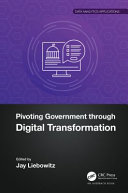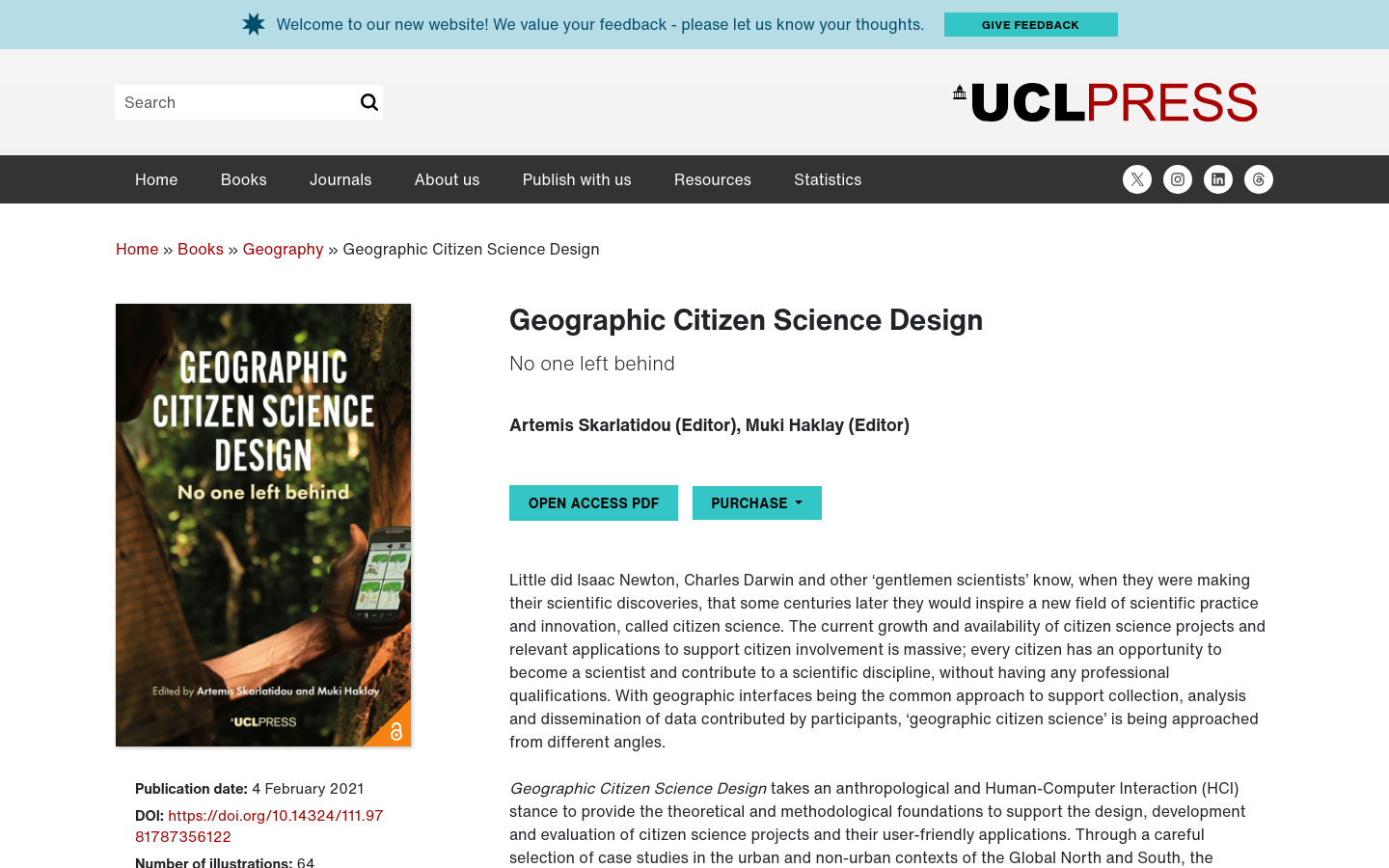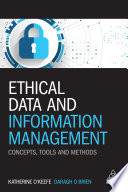Civic Tech Field Guide
Sharing knowledge and productively growing the fieldSearch Results - act (2977)
Showing 2977 Results

This is the first book to provide much needed guidance and case studies from marine and coastal conservation.

The final section examines areas in which community citizen science may exhibit promise in terms of outcomes and impacts, discusses concerns that may hinder its overall potential, and assesses the roles different stakeholders may play to ...

This book analyses the impact of new information and communication technologies within representative democracy, and examines how representative democracies are adapting to new ICTs.

This Primer analyse these new forms of political party membership and presents how different parties and contexts have given birth to different ways of engaging citizens in the party’s life

The book drives the reader to a better theoretical and practical comprehension of smart city development, beginning with a thorough and systematic analysis of the research literature published to date.

This book serves as a vital reference source for urban planners, policymakers, managers, entrepreneurs, graduate-level students, researchers, and academicians seeking coverage on topics centered on conceptual, technological, and design ...

This book discusses the implications of recent innovations in information and communication technology for civic and political engagement.

Through stories of youth using their many voices in and out of school to explore and express their ideas about the world, this book brings to the forefront the reality of lived literacy experiences of adolescents in today’s culture in ...

In this counterintuitive study of digital democracy, Jen Schradie shows how the web has become another weapon in the arsenal of the powerful, and a potent weapon for conservative activists

This book uses a combination of descriptive statistical analysis and real-world case study narratives to evaluate the ways in which each individual urban variable or their combination matter in the diversity of smart city approaches around ...

This is an essential guide for government employees, scholars, and regular citizens who want to make government work more effectively and democratically in the digital age.

The book covers issues presented by the technological changes on policy making and offers a wide array of perspectives

Geographic Citizen Science Design
United Kingdom of Great Britain and Northern Ireland (the)This book presents a selection of wide-ranging case studies that provide insights into the design, interaction barriers, and lessons learned from a diverse set of participants.

This volume provides an important update to our current understanding of politics and the internet in a variety of new contexts, both geographically and institutionally

Instructor and sustainable design expert Scott Boylston explains the relationship between design thinking and social innovation and teaches us about the impact design can have on global goals, including sustainable development, anti-racism, ...

In this book, a number of leading democratic theorists address the key issues that surround the theory and practice of deliberative democracy

PRAISE FOR SMART CITIES, SMART FUTURE "Mike and Cornelia have managed to distill hundreds of ideas, sources, milestones, technologies and dreams into a thoughtful 'showcase of tomorrow'. . . their analysis, synthesis and narrative make this ...

In this book, the real-world implementations of successful Smart City technology in places like New York, Amsterdam, Copenhagen, and more are analyzed, and insights are gained from recorded attempts in similar urban centers that have not ...

The chapters in this book focus on the design, development, implementation, use, and evaluation of information system technologies and methodologies to support crisis response and management, as well as technology management-related issues

With The Data Journalism Handbook, you’ll explore the potential, limits, and applied uses of this new and fascinating field.

Shapiro brings much-needed empirical research to a field that has often relied on “10,000-foot views.” Timely, important, and expertly researched, Design, Control, Predict doesn’t just help us comprehend urbanism today—it advances ...

This book provides the most current and comprehensive overview available today of the critical role of information systems in emergency response and preparedness

The Propagandists' Playbook peels back the layers of the right-wing media manipulation machine to reveal why its strategies are pervasive, while humanizing the people whose worldviews and media practices conservatism embodies. Based on interviews and ethnographic observations of two Republican groups over the course of the 2017 Virginia gubernatorial race--including the author's firsthand experience of the 2017 Unite the Right rally--the book considers how Google algorithms, YouTube playlists, pundits, and politicians can manipulate search, reaffirm beliefs, and expose audiences to extremist ideas, blurring the lines between reality and fiction. Tripodi argues that conservatives who embody the Christian worldview give authoritative weight to original texts and interrogate the media using the same tools taught to them in Bible study--for example, using Google to "fact check" the news. The result of this practice, tied to conservative marketing tactics, is a radicalization of content and a changing of narratives adopted by the media.

This book illustrates how social media platforms enable us to understand everyday politics and evaluates the extent to which they can foster accountability, transparency and responsiveness

Hence the volume offers an intellectual resource that expands on the current literature, but also provides a pedagogical resource to universities as well as a reflective opportunity for practitioners.

Digital Democracy considers how technological developments might combine with underlying social, economic and political conditions to produce new vehicles for democratic practice. The growth of new Information and Communication Technologies (ICTs) such as the Internet, alongside growing concerns about the failure of advanced societies to live up to the democratic idea, has produced much interest in the prospects for a digital democracy. This book will provide invaluable reading for those studying social policy, politics and sociology as well as for policy analysts, social scientists and computer scientists.

The book revolves around recent developments in specific scientific disciplines, including biology, ecology, computer science, astronomy, and cognitive science.

The book features contributions that report original research in the theoretical, technological, and social aspects of geoinformation methods, as applied to supporting citizen science.

Information and how we manage, process and govern it is becoming increasingly important as organizations ride the wave of the big data revolution. Ethical Data and Information Management offers a practical guide for people in organizations who are tasked with implementing information management projects. It sets out, in a clear and structured way, the fundamentals of ethics, and provides practical and pragmatic methods for organizations to embed ethical principles and practices into their management and governance of information. Written by global experts in the field, Ethical Data and Information Management is an important book addressing a topic high on the information management agenda. Key coverage includes how to build ethical checks and balances into data governance decision making; using quality management methods to assess and evaluate the ethical nature of processing during design; change methods to communicate ethical values; how to avoid common problems that affect ethical action; and how to make the business case for ethical behaviours.

The production and consumption of news in the digital era is blurring the boundaries between professionals, citizens and activists. Actors producing information are multiplying, but still media companies hold central position. Journalism research faces important challenges to capture, examine, and understand the current news environment. The SAGE Handbook of Digital Journalism starts from the pressing need for a thorough and bold debate to redefine the assumptions of research in the changing field of journalism. The 38 chapters, written by a team of global experts, are organised into four key areas: Section A: Changing Contexts Section B: News Practices in the Digital Era Section C: Conceptualizations of Journalism Section D: Research Strategies By addressing both institutional and non-institutional news production and providing ample attention to the question ‘who is a journalist?’ and the changing practices of news audiences in the digital era, this Handbook shapes the field and defines the roadmap for the research challenges that scholars will face in the coming decades.

This book provides a concise and usable overview of the practical implications of important public sector United States federal, state, and municipal laws and standards related to information governance, as they pertain to librarians, research staff, universities, corporate regulatory managers, and public-sector information governance professionals. It is the first in a series of two volumes addressing public sector information governance compliance matters from the perspective of our target audience. Topics addressed in the book include: the evolving role of librarians and the need for librarians and legal researchers to understand the principles of information governance, the importance of broad-based regulatory IG principles such as the Federal Records Act, the Paperwork Reduction Act of 1980 and 36 CFR Chapter XII, Subchapter B – Records Management, that have been promulgated by various federal government agencies in framing public-sector IG principles, a survey of interpretive surveys from the Office of Management and Budget (OMB) that further elucidate the core IG principles applicable to public sector stakeholders, case studies detailing the application of important IG principles by federal agencies and bodies, and a survey of important IG issues facing state and local governments.

Global in scope, books in the series are characterised by a stress on comparative analysis and strong methodological rigour

This book considers the radical effects the emergence of social media and digital politics have had on the way that advocacy organisations mobilise and organise citizens into political participation

What are your key Citizen science organizational performance measures, including key short and longer-term financial measures?

In revealing this history, the book provides a rich empirical look at the communication tools, practices, and infrastructure that shape contemporary online campaigning

This book critically examines ‘smart city’ discourse in terms of governance initiatives, citizen participation and policies which place emphasis on the ‘citizen’ as an active recipient and co-producer of technological solutions to ...

newDemocracy Foundation
New South Wales, AustralianewDemocracy is an independent, non-partisan research and development organisation. We aim to discover, develop, demonstrate, and promote complementary alternatives which will restore trust in public decision making.

This book reflects on the rapid rise of social media across the African continent and the legal and extra-legal efforts governments have invented to try to contain it

There are several different definitions of smart cities based on the various characteristics related to the adjective Smart and the noun City.

The book significantly enhances current scholarship, serving as a guide to existing research and identifying useful future research

It provides this by providing links to current research, examples from the field, and expert input. It is intended to serve as a supplement to the User's Guide.

This book opens with an examination of the technological reality on which Smart Cities are built, from the chips and sensors that enable us to monitor what happens within the infrastructure to the smartphones that connect individuals.

The Routledge Companion to Digital Journalism Studies offers an unprecedented collection of essays addressing the key issues and debates shaping the field of Digital Journalism Studies today. Across the last decade, journalism has undergone many changes, which have driven scholars to reassess its most fundamental questions, and in the face of digital change, to ask again: ‘Who is a journalist?’ and ‘What is journalism?’. This companion explores a developing scholarly agenda committed to understanding digital journalism and brings together the work of key scholars seeking to address key theoretical concerns and solve unique methodological riddles. Compiled of 58 original essays from distinguished academics across the globe, this Companion draws together the work of those making sense of this fundamental reconceptualization of journalism, and assesses its impacts on journalism’s products, its practices, resources, and its relationship with audiences. It also outlines the challenge presented by studying digital journalism and, more importantly, offers a first set of answers. This collection is the very first of its kind to attempt to distinguish this emerging field as a unique area of academic inquiry. Through identifying its core questions and presenting its fundamental debates, this Companion sets the agenda for years to come in defining this new field of study as Digital Journalism Studies, making it an essential point of reference for students and scholars of journalism.

In Collaborative Governance for Urban Revitalization, Michael J. Rich and Robert P. Stoker confront the puzzle of why the outcomes achieved by the original Empowerment Zones varied so widely given that each city had the same set of federal ...






